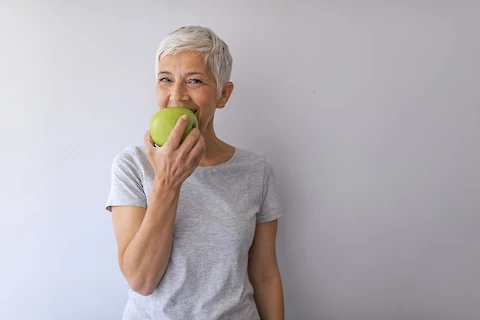
Help Seniors in Annapolis Meet Nutrient Needs with These Tips
For people of all ages, eating a healthy diet is an important part of maintaining overall health. However, nutrient requirements change in different stages of life. Here are four things that seniors in Annapolis/Severna Park and their caregivers need to know about the unique nutrient needs of older adults.
1. Eat an Adequate Level of Protein
For older adults, eating enough protein is linked to preserving muscle mass, maintaining functional skills like dressing independently, and having better overall health. Unfortunately, a recent study found 46 percent of older Americans don't consume an adequate amount of protein. How much protein seniors need in their diet depends on individual factors like weight. Seniors should discuss how much protein they need with their physician. Good sources of protein include poultry, beans, lentils, fish, and eggs.
2. Make Calcium and Vitamin D a Priority
Getting enough calcium and vitamin D helps seniors reduce their risk of bone problems like fractures and osteoporosis. Experts recommend adults aged 70 and over-consume 1,200 mg of calcium and 800 IU of vitamin D each day. Nonfat milk, low-fat yogurt, cheese, fortified oatmeal, and sardines with bones are examples of calcium-rich foods. Egg yolks, fortified orange juice, fortified milk, and liver are high in vitamin D. Since sunlight is also a source of vitamin D, homebound seniors may need to speak to their doctors about taking a vitamin D supplement.
3. Watch Out for Sodium
Sodium is an essential nutrient. However, eating too much sodium raises the risk of high blood pressure. The recommendation for adults aged 51 and over is to consume no more than 2,300 milligrams of sodium daily. The recommendation goes down to 1,500 milligrams a day for seniors who already have high blood pressure.
Both amounts might sound like a lot, but the American Heart Association says most Americans consume far more sodium than they should. Caregivers need to be aware that most sodium in our diets doesn't come from salt added while cooking at home or from shaking salt at the table. Packaged and processed foods account for about 70 percent of the sodium in the typical American diet. Checking food labels to make sure seniors aren't getting too much sodium is a must.
4. Remember the Forgotten Nutrient: Water
Since awareness of thirst diminishes with age, seniors frequently don't drink enough water. Aging also reduces the volume of water in the human body. These factors put seniors at greater risk of dehydration.
Home caregivers can help seniors stay hydrated. It's a good idea for caregivers to keep water within easy reach of the senior they're caring for. Many seniors can't be expected to drink an entire glass of water at once because they feel full before they reach eight ounces. Therefore, encouraging seniors to sip water throughout the day can be helpful.
These four tips can go a long way towards helping seniors meet their nutrient needs. However, chronic health problems or mobility issues can make it challenging for seniors to purchase food and cook healthy meals. Our professional home caregivers are skilled at preparing nutrient-rich meals for older adults. Contact us for more information.